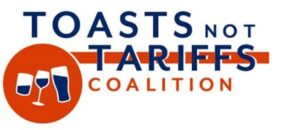
Toasts Not Tariffs Coalition Sends Letter to President Trump Urging Permanent Fair & Reciprocal Trade for U.S. and EU Spirits & Wines
WASHINGTON – The Toasts Not Tariffs Coalition, a group of 57 associations representing the entire three-tier chain of the U.S. alcohol industry and related industries, sent a letter today to President Donald J. Trump urging that fair and reciprocal tariff- free trade for spirits and wine products be included in the final agreement between the U.S. and EU.
The organizations commended the administration’s objective to strengthen the economic vitality of the United States and stated that securing an agreement with the EU that includes a permanent return to fair and reciprocal trade for spirits and wine would “represent a clear and significant win for American workers, businesses and consumers.”
The coalition raised concerns that if an agreement between the U.S. and EU is not made soon, it could jeopardize the critical holiday selling season.
“Mr. President, we need toasts, not tariffs, as we head into the most important season for our industry. As part of your America First Trade Policy, we seek your leadership to secure fair and reciprocal tariff-free trade for U.S. and EU spirits and wines as soon as possible,” the letter stated noting that a 15% tariff on EU wine and spirits could result in more than 25,000 American job losses and nearly $2 billion in lost sales.
The letter stated, “Our coalition members produce, distribute and sell wine and spirits in every U.S. state and support more than 3.5 million jobs, generating $476 billion in annual economic activity. These include farmers who grow inputs such as grapes, corn, wheat, barley, hops, rye and rice on more than 1 million acres of farmland, all the way through the supply chain to the waiters, bartenders, truck drivers and retail clerks. These jobs also include fields such as transportation and distribution, bottling and packaging, marketing and finance, restaurants, bar staff, taverns, small package stores and large and small grocery outlets.”
The coalition explained that wine and spirits are unique products, often tied to specific geographical regions around the world.
Many U.S. and EU spirits are recognized as “distinctive products” and can only be made in their designated countries—Bourbon and Tennessee Whiskey in the U.S., and Cognac in France. Similarly, wine is linked to its place of origin through American Viticultural Areas appellations of origin or geographical indications. Consequently, production of these products cannot simply be relocated to circumvent tariffs.
“Our sectors stand as a model of mutually beneficial trade, and the livelihoods of those working within it depend heavily on international trade,” the letter continued.
Most U.S. wine exports go to countries with low or zero import duties. Nearly 86% of U.S. spirits exports go to countries that have eliminated tariffs on all U.S. spirits, and approximately 98% of spirits imports originate from countries that have eliminated tariffs on U.S. spirits. Ensuring predictable access to global markets creates jobs, supporting rural and urban communities.
Below is commentary from several Toast Not Tariffs coalition leaders:
Chris Swonger, President & CEO, Distilled Spirits Council of the U.S.
“America’s unique and special distilling industry is not only an economic driver for our nation, but a living expression of heritage, craftsmanship and community. We need President Trump’s leadership to safeguard the U.S. distilled spirits sector by returning to permanent, tariff-free trade on distilled spirits between the U.S. and EU. Doing so will help secure economic vitality during one of the most challenging times for the hospitality industry and set a benchmark for all other countries as trade negotiations with the U.S. continue.”
Margie A.S. Lehrman, CEO, American Craft Spirits Association:
“We encourage the administration to move swiftly to secure a fair and reciprocal trade agreement. Our community of independent craft producers, along with many of the agricultural and hospitality partners we work so closely with, is already facing the most fierce economic headwinds and market conditions we have seen in decades. The ongoing tariff uncertainty is creating further pressure, making it impossible for these small businesses to forecast or plan for the future.”
Tom Wark, Executive Director, Association of Wine Retailers:
“Without productive negotiations reducing reciprocal tariffs on wine and spirits, American wine retailers anticipate a significant decline in sales on top of the already difficult market, as well as significant job losses and subsequent business closures.”
Scott DeFife, President, Glass Packaging Institute (GPI)
“The GPI, representing nearly all of the domestically manufactured food and beverage glass container companies, remain concerned about the potential for retaliatory tariffs on our key alcohol supply chain customers and brands, and the significant negative economic impact these tariffs would have on their companies and export markets. We encourage the Administration and EU leadership to consider and include wine and spirits in any reciprocal trade agreement moving forward”.
Eric Gregory, President, Kentucky Distillers’ Association:
“Kentucky Bourbon is a perfect model of how reciprocal, tariff-free trade creates American jobs and investment. Our historic Bourbon and distilled spirits industry has tripled its economic impact and more than doubled the number of Kentucky jobs, payroll and benefits over the last 15 years due to the growing global thirst for our signature spirit. As the European Union is our largest export market, it’s imperative that the U.S. and E.U. secure a mutually beneficial trade agreement as soon as possible.”
Michelle Korsmo, President & CEO, National Restaurant Association
“The restaurant industry is concerned that the inclusion of European wine and spirits in the recently announced U.S.-EU trade agreement will increase costs and push up menu prices for consumers who want these choices. For specific cuisines or restaurant brand positioning, international wine and spirits are an essential part of a restaurant’s unique and varied beverage alcohol offering and part of the expectations of their customers. We urge negotiators to support the hospitality industry and the millions of people it employs by exempting wine and spirits from these tariffs.”
Francis Creighton, President and CEO, Wine & Spirits Wholesalers of America:
“Tariffs on wine and spirits will hit American importers and distributors hard—especially those serving restaurants, bars, and hospitality businesses that are an important part of the domestic economy. This isn’t just about bottles; it’s about American jobs, and we urge the EU and US to remove tariffs on wine and spirit products so that we can grow our economy and workforce.”
-30-
Contact: Lisa Hawkins, Distilled Spirits Council of the U.S., 202-256-1330

